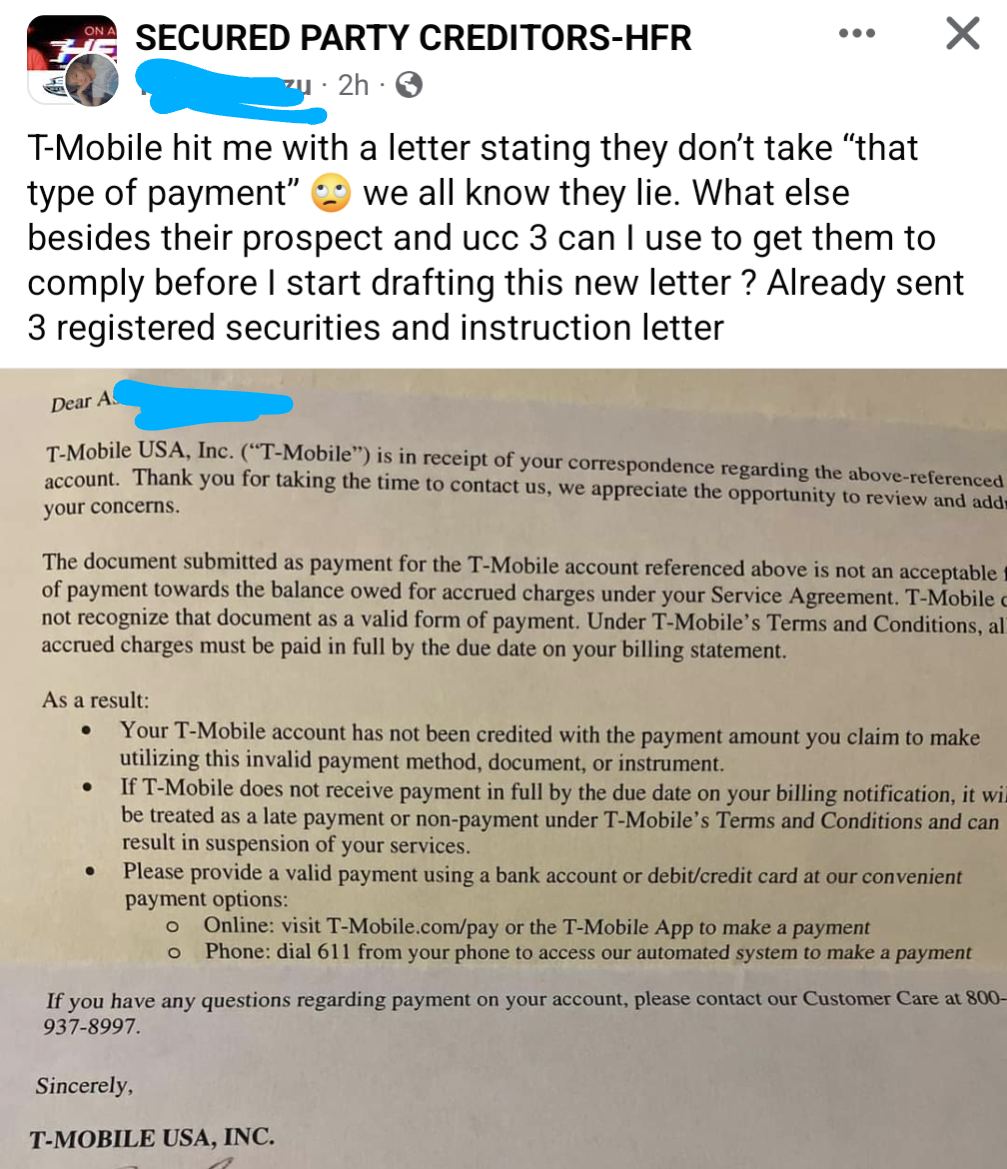this post was submitted on 24 Jan 2024
371 points (98.2% liked)
InsanePeopleFacebook
2666 readers
1 users here now
Screenshots of people being insane on Facebook. Please censor names/pics of end users in screenshots. Please follow the rules of lemmy.world
founded 1 year ago
MODERATORS
you are viewing a single comment's thread
view the rest of the comments
view the rest of the comments

Only debts to the government. They also only have to accept cash in person. For example. If you owe the IRS 5k and you go to a local Taxpayer Assistance Center, with 5k in coins, they have to accept it. However, if you are paying via mail, online, etc., they are allowed to restrict the payment types they will accept.
ah thanks. This would explain it and I was under a false understanding.
I believe the Government has to accept cash for any charges, but private companies have to accept cash for debts. Like if your car gets towed, the tow company must accept cash, even if it's all pennies.
This is only true for certain states and certain businesses. For instance, if you are in Texas your example of towing is correct. In the state of Ohio the state law states that tow companies can only accept cash, certified checks, Discover, Mastercard, American Express, and Visa. However it does not dictate that they MUST accept all of those. The point of the clause is to remove personal checks from the system, since most tows are requested by a government body, and personal checks are a major vector for fraud. However, in Texas, towing is one of like 3 different things I can find that require cash acceptance. All of these are mostly business generated at the request of the government.
Now, debt owed to private businesses, that gets rolled into some sort of government mediated mechanism, IE bankruptcy, do have to accept cash. That debt collection is generally either handled by the government, or a third party contractor. There are no blanket, federal level, laws that dictate businesses must accept cash. Now, there is a growing movement to make state laws forcing this. This is because cashless systems create an extra barrier for poor people, especially the homeless, minorities, and the elderly. Though this is in it's infancy and it's hard to tell how well it will be accepted.
ah thanks. This would explain it and I was under a false understanding.